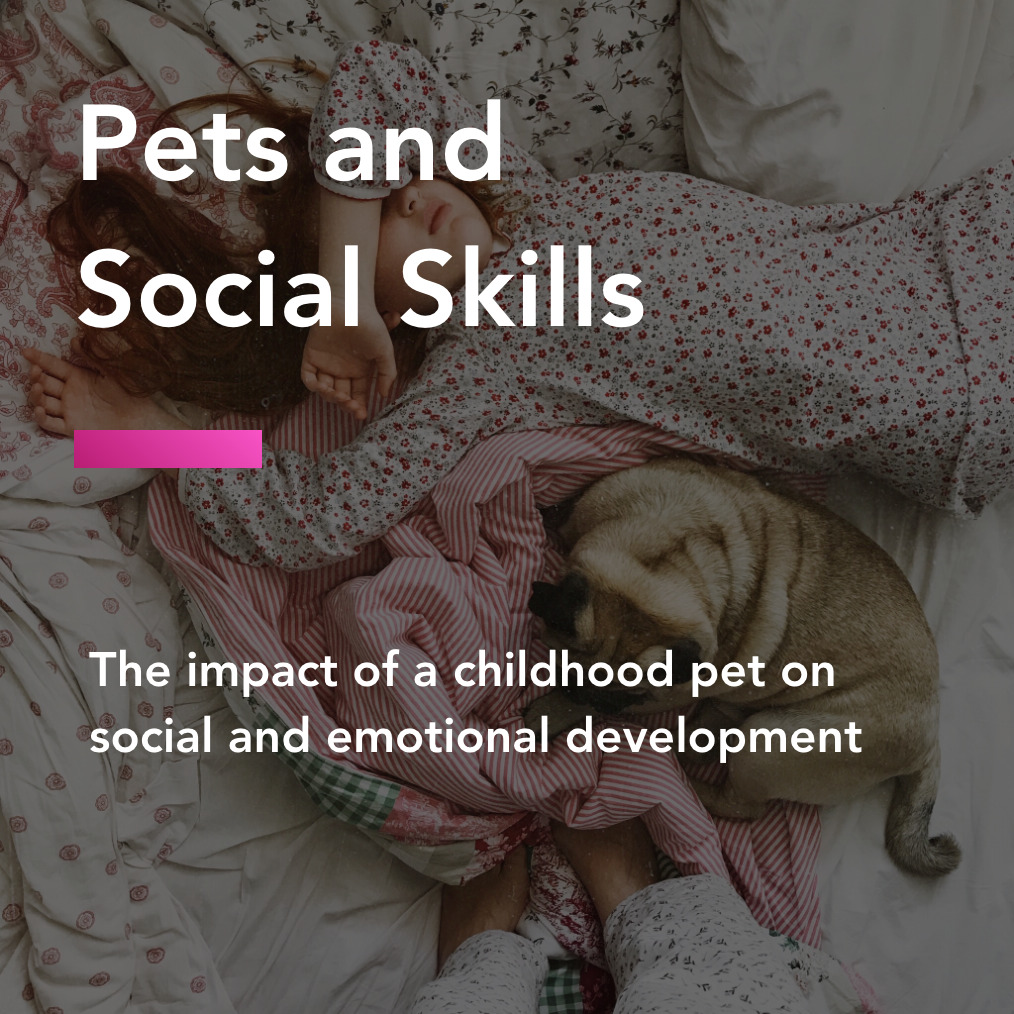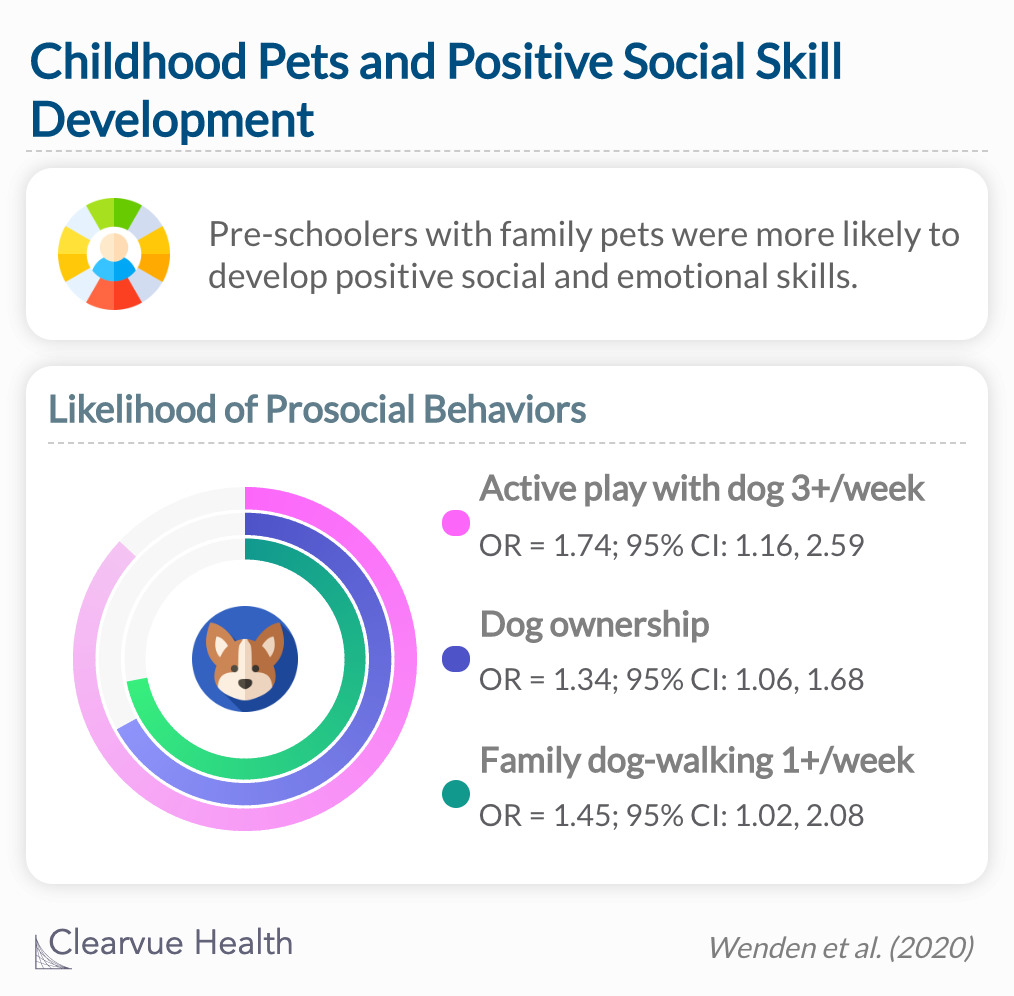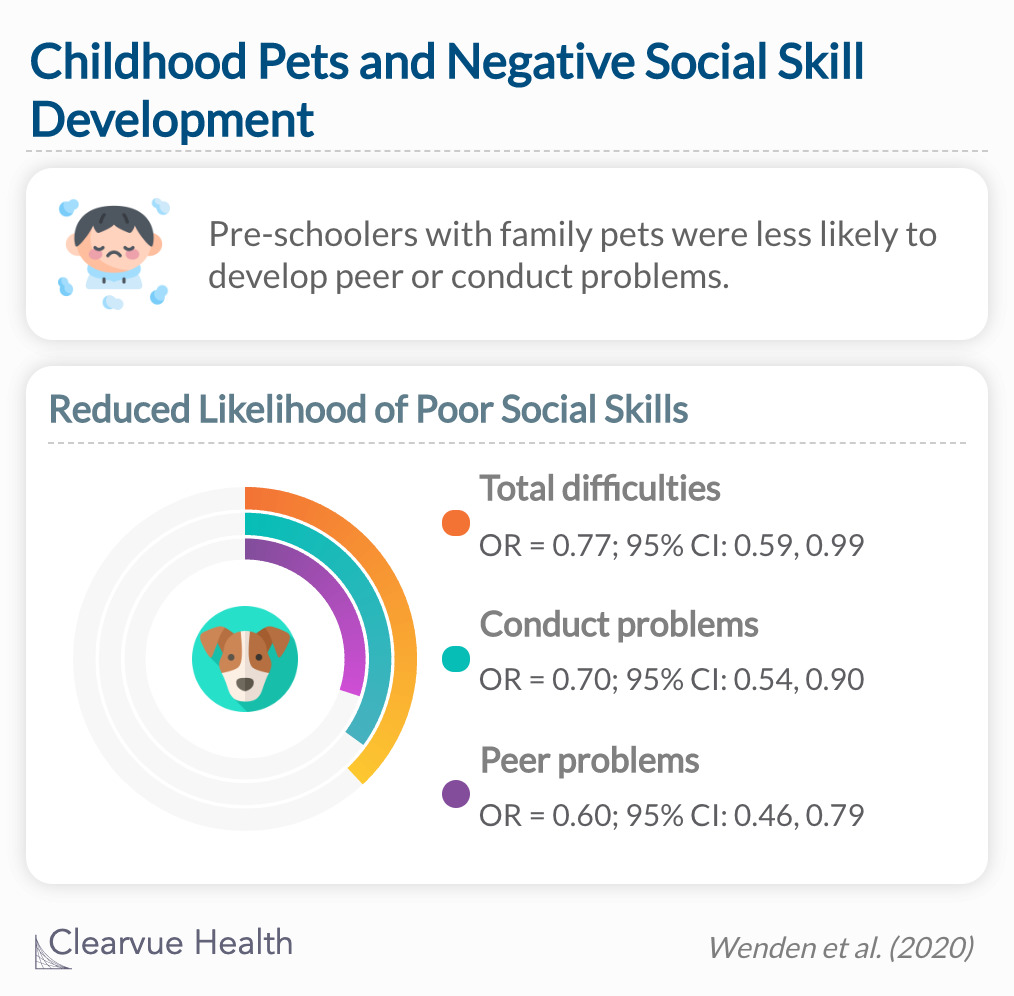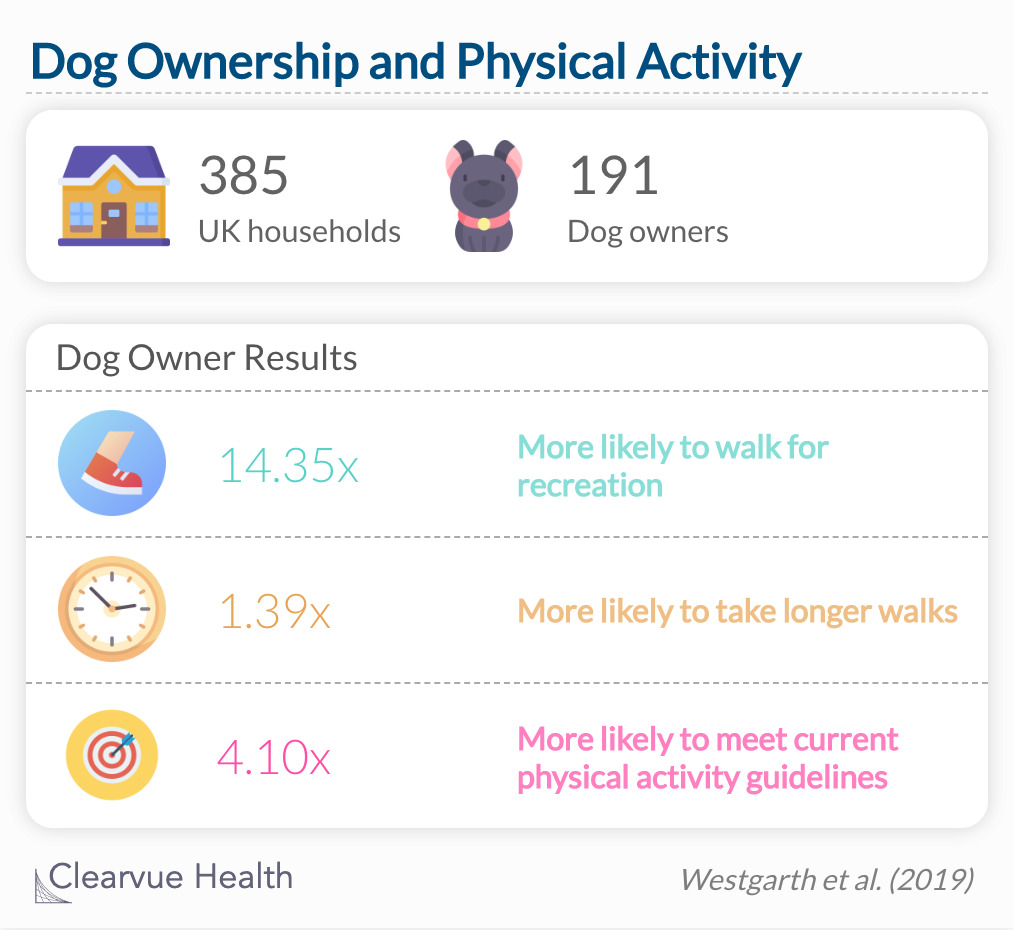Pets and social skills: the impact of a childhood pet on social and emotional development
There are many benefits of growing up with a pet. Taking care of a pet can teach responsibility because the pet requires daily care and attention. Having a pet can also teach empathy and compassion since pets are loving creatures. The benefits of a family pet have been recorded at an early age. Research suggests that children benefit from a family pet as early as pre-school.
Promotion of social skills
A recent survey about family pets was sent to 1646 parents of pre-schoolers. The sample was originally part of a larger study about child education and care. The survey asked whether the family had a pet and the types of interactions their child had with the pet. They were also asked to fill out the Strengths and Difficulties Questionnaire, which measures children’s social-emotional development. Researchers then took all this information and compared the results between pet owners and non-pet owners.
Having a dog and interacting with it through play and walking may be important mechanisms for facilitating young children’s social-emotional development.
Source: The relationship between dog ownership, dog play, family dog walking, and pre-schooler social–emotional development: findings from the PLAYCE observational study
The analysis found that pre-schoolers with family dogs were 34% more likely to develop prosocial behaviors. This number increased with the amount of interaction the child had with the family pet. Activities like family dog-walking and active play with the dog boosted the child's likelihood of developing prosocial behaviors.
Children from dog-owning households had reduced likelihood of conduct problems (odds ratio (OR) = 0.70; 95% confidence interval (CI): 0.54, 0.90), peer problems (OR = 0.60; 95% CI: 0.46, 0.79), and total difficulties (OR = 0.77; 95% CI: 0.59, 0.99) and increased likelihood of prosocial behavior (OR = 1.34; 95% CI: 1.06, 1.68) compared with children without a dog.
The analysis also looked at problem behaviors. Pre-schoolers with family pets were 23% less likely to have difficulties with social skills. Specifically, they were less likely to struggle with peer problems and conduct problems. These results tell us that childhood pets can both promote positive social behaviors as well as lessen social difficulties.
Promotion of physical activity
Along with social skills, physical activity is an important aspect of childhood development. Many adults who exercise regularly built their habits when they were young. In the UK, researchers sent out a survey to assess dog ownership and physical activity. The aim was to compare the physical activity levels of dog owners and non-dog owners.
Dog ownership is associated with more recreational walking and considerably greater odds of meeting physical activity guidelines.
Source: Dog owners are more likely to meet physical activity guidelines than people without a dog: An investigation of the association between dog ownership and physical activity levels in a UK community
In nearly every category, dog owners reported longer and more frequent physical activity. On average, dog owners walked their dogs once a day. Participants said that their dog was a motivator for recreational activity. Others reported walking with their dog for transport. Dog owners also jogged and biked with their dogs.
The exercise opportunities associated with a dog are beneficial for anyone's health, particularly growing children. A family dog creates another opportunity for play and activity instead of sitting in front of the television. Children who are more physically active are less likely to develop health problems like obesity and type-2 diabetes.






































